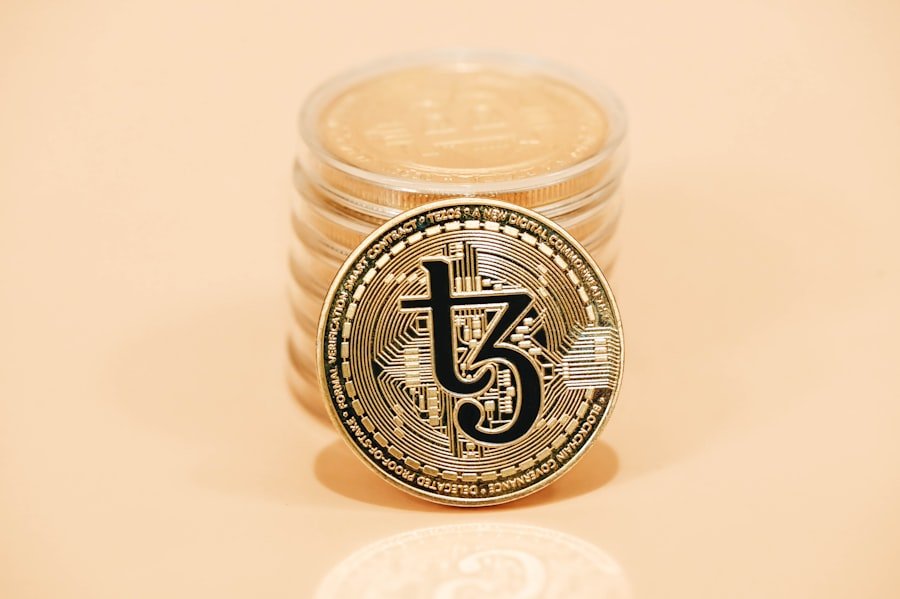The advent of blockchain technology has ushered in a new era of possibilities across various sectors, and human resources is no exception. In particular, the integration of blockchain into payroll management is gaining traction as organisations seek to enhance efficiency, transparency, and security in their financial operations. Blockchain, a decentralised ledger technology, allows for the secure and immutable recording of transactions, making it an ideal candidate for managing payroll processes.
By leveraging this technology, companies can streamline their payroll systems, reduce administrative burdens, and ensure that employees are compensated accurately and promptly. The traditional payroll system often grapples with inefficiencies, such as delays in processing payments, errors in calculations, and a lack of transparency in transactions. These issues can lead to employee dissatisfaction and increased operational costs.
The introduction of HR blockchain into payroll management addresses these challenges head-on. By creating a transparent and tamper-proof record of all payroll transactions, organisations can foster trust among employees while simultaneously reducing the risk of fraud. As businesses continue to evolve in the digital age, understanding the implications of HR blockchain for payroll is crucial for maintaining a competitive edge.
Summary
- HR blockchain for payroll is a revolutionary technology that is changing the way payroll management is done.
- The benefits of HR blockchain for payroll include increased efficiency, transparency, and accuracy in payroll processes.
- Security and privacy are key considerations in HR blockchain for payroll, with the technology offering enhanced data protection and confidentiality.
- Implementing HR blockchain for payroll in your organisation requires careful planning, investment, and training for employees.
- Challenges and considerations for HR blockchain in payroll include regulatory compliance, integration with existing systems, and potential resistance to change.
How HR Blockchain is Changing Payroll Management
The transformation of payroll management through HR blockchain is profound and multifaceted. One of the most significant changes is the automation of payroll processes. Smart contracts, which are self-executing contracts with the terms of the agreement directly written into code, can automate various aspects of payroll management.
For instance, these contracts can automatically trigger payments based on predefined conditions, such as hours worked or project milestones achieved. This automation not only reduces the time spent on manual calculations but also minimises human error, ensuring that employees receive accurate payments without unnecessary delays. Moreover, HR blockchain facilitates real-time tracking of payroll transactions.
Traditional systems often rely on batch processing, which can lead to delays in payment processing and a lack of visibility into the status of transactions. With blockchain, every transaction is recorded in real-time on a decentralised ledger accessible to all relevant parties. This transparency allows employees to track their earnings and deductions instantly, fostering a sense of empowerment and trust in the payroll process.
Additionally, it enables HR departments to monitor compliance with tax regulations and labour laws more effectively, as all transactions are recorded in an immutable format that can be easily audited.
Benefits of HR Blockchain for Payroll

The benefits of implementing HR blockchain for payroll management are extensive and impactful. One of the primary advantages is cost reduction. By automating payroll processes and eliminating intermediaries, organisations can significantly lower administrative costs associated with payroll management.
Traditional payroll systems often require substantial resources for data entry, reconciliation, and compliance checks. In contrast, blockchain technology streamlines these processes, allowing HR teams to focus on strategic initiatives rather than mundane administrative tasks. Another notable benefit is enhanced accuracy in payroll calculations.
Human error is an inherent risk in traditional payroll systems, where manual data entry can lead to discrepancies in employee compensation. Blockchain’s decentralised nature ensures that all data is consistent across the network, reducing the likelihood of errors. Furthermore, the use of smart contracts guarantees that payments are executed based on predetermined criteria, ensuring that employees are compensated fairly and promptly.
This accuracy not only boosts employee morale but also mitigates the risk of costly legal disputes arising from payroll discrepancies.
Security and Privacy in HR Blockchain for Payroll
Security and privacy are paramount concerns in any payroll system, and HR blockchain offers robust solutions to address these issues. The decentralised nature of blockchain technology means that data is not stored in a single location, making it inherently more secure against cyberattacks and data breaches. Each transaction is encrypted and linked to the previous one, creating a chain that is nearly impossible to alter without consensus from the network participants.
This level of security is particularly crucial for sensitive employee information, such as salary details and personal identification data. In addition to security, privacy considerations are also addressed through blockchain technology. While transparency is a key feature of blockchain, it does not necessarily mean that all information is publicly accessible.
Organisations can implement permissioned blockchains where access to certain data is restricted to authorised personnel only. This ensures that sensitive information remains confidential while still benefiting from the transparency and immutability that blockchain provides. By striking a balance between transparency and privacy, organisations can build trust with their employees while safeguarding their personal information.
Implementing HR Blockchain for Payroll in Your Organisation
The implementation of HR blockchain for payroll management requires careful planning and consideration. First and foremost, organisations must assess their current payroll processes to identify areas where blockchain can add value. This involves evaluating existing systems, understanding pain points such as inefficiencies or inaccuracies, and determining how blockchain technology can address these challenges.
Engaging stakeholders from various departments—such as finance, IT, and HR—can provide valuable insights into the specific needs and requirements for a successful implementation. Once the assessment is complete, organisations should consider partnering with experienced blockchain solution providers who can guide them through the implementation process. These providers can offer expertise in developing customised solutions tailored to the organisation’s unique needs.
Additionally, training employees on how to use the new system effectively is crucial for ensuring a smooth transition. Providing comprehensive training sessions will help staff understand the benefits of blockchain technology and how it enhances their roles within the organisation.
Challenges and Considerations for HR Blockchain in Payroll

Despite its numerous advantages, implementing HR blockchain for payroll management is not without challenges. One significant hurdle is the initial investment required for adopting this technology. Transitioning from traditional systems to blockchain-based solutions may involve substantial costs related to software development, infrastructure upgrades, and employee training.
Organisations must weigh these costs against the long-term benefits to determine whether the investment is justified. Another consideration is regulatory compliance. The legal landscape surrounding blockchain technology is still evolving, and organisations must ensure that their use of blockchain for payroll adheres to relevant laws and regulations.
This includes compliance with data protection laws such as the General Data Protection Regulation (GDPR) in Europe, which imposes strict requirements on how personal data is collected, stored, and processed. Engaging legal experts during the implementation phase can help organisations navigate these complexities and mitigate potential risks associated with non-compliance.
Future Trends and Developments in HR Blockchain for Payroll
As blockchain technology continues to mature, several trends are emerging that will shape its future application in payroll management. One notable trend is the increasing integration of artificial intelligence (AI) with blockchain systems. AI can enhance decision-making processes by analysing vast amounts of data generated by blockchain transactions.
For instance, AI algorithms could identify patterns in employee compensation or predict potential compliance issues based on historical data. This synergy between AI and blockchain has the potential to revolutionise payroll management by providing deeper insights and more informed decision-making. Additionally, the rise of remote work has prompted organisations to rethink their payroll strategies.
With employees distributed across various geographical locations, traditional payroll systems may struggle to accommodate diverse tax regulations and currency conversions. Blockchain’s decentralised nature allows for seamless cross-border transactions without the need for intermediaries or complex currency exchanges. As more companies embrace remote work arrangements, the demand for blockchain-based payroll solutions that cater to a global workforce will likely increase.
The Impact of HR Blockchain on Payroll Management
The integration of HR blockchain into payroll management represents a significant leap forward in how organisations handle employee compensation. By automating processes, enhancing accuracy, and improving security, blockchain technology addresses many of the challenges faced by traditional payroll systems. As businesses continue to navigate an increasingly digital landscape, embracing innovative solutions like HR blockchain will be essential for maintaining operational efficiency and employee satisfaction.
The potential benefits extend beyond mere cost savings; they encompass improved employee trust through transparency and accuracy in compensation practices. As organisations explore the possibilities offered by HR blockchain for payroll management, they must remain vigilant about regulatory compliance and invest in training to ensure successful implementation. Ultimately, the impact of HR blockchain on payroll management will be profound, paving the way for a more efficient and equitable approach to employee compensation in the years to come.
In a recent article on how to efficiently manage finances for an interior design company, the importance of using innovative technologies like HR Blockchain for Payroll was highlighted. By incorporating blockchain technology into payroll processes, companies can streamline their financial operations and ensure greater transparency and security. This case study on Golden Wonder demonstrates how embracing new technologies can lead to improved efficiency and cost savings in business operations. By managing quality, safety, customer service, and cost effectively, companies can stay competitive in today’s fast-paced business environment.
FAQs
What is HR Blockchain for Payroll?
HR Blockchain for Payroll is a technology that uses blockchain to securely and efficiently manage payroll processes within an organization. It aims to streamline payroll operations, enhance data security, and reduce the risk of errors and fraud.
How does HR Blockchain for Payroll work?
HR Blockchain for Payroll works by using blockchain technology to create a secure and transparent ledger of payroll transactions. This ledger is distributed across a network of computers, making it difficult for any single entity to tamper with the data. Payroll information is stored in blocks, which are linked together in a chain, creating a permanent and unchangeable record of transactions.
What are the benefits of using HR Blockchain for Payroll?
Some of the benefits of using HR Blockchain for Payroll include increased data security, reduced risk of fraud, improved transparency, and streamlined payroll processes. It can also help in reducing administrative costs and ensuring compliance with regulations.
Is HR Blockchain for Payroll secure?
Yes, HR Blockchain for Payroll is considered to be highly secure due to the nature of blockchain technology. The decentralized and encrypted nature of blockchain makes it difficult for unauthorized parties to access or alter payroll data, enhancing security and trust in the system.
How does HR Blockchain for Payroll improve transparency?
HR Blockchain for Payroll improves transparency by providing a clear and unchangeable record of payroll transactions. This transparency can help in building trust among employees and stakeholders, as they can easily verify the accuracy and integrity of payroll data.
